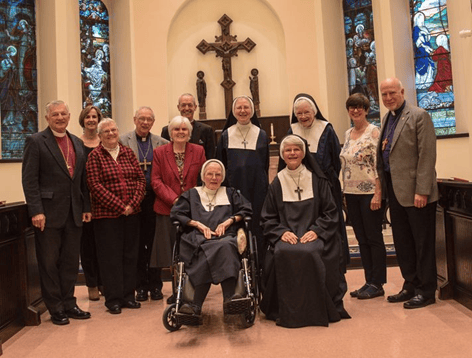It’s a popular belief: The more educated a person is, the less religious he or she likely will be.
And it’s mostly right… unless you’re Christian, according to a new analysis of Pew Research Center surveys released Wednesday (April 26).
“It’s certainly our sense that, if anything, that might be the conventional wisdom that higher levels of educational attainment are linked with religiosity. That said, I am aware there are scholars, sociologists, who in recent years have begun to call that into question,” said Gregory Smith, associate director for research at the Pew Research Center.
“This is our attempt to weigh in with data from the Religious Landscape Study.”
Americans adults with higher levels of education do report lower levels of religious commitment by most measures, according to Pew’s analysis.
“I think the answer is, ‘Well, it’s complicated.’ On the one hand, if you just look at the public as a whole, there’s no question people with the highest levels of educational attainment tend to be less religious than those with lower levels of educational attainment,” Smith said.
Fewer than half of college graduates, or 46 percent, say religion is “very important” in their lives, compared with 53 percent of those who have completed some college and 58 percent of those with no more than a high school education, according to Pew. College grads also are less likely to say they believe in God “with absolute certainty” and pray daily.
But there are exceptions.
The “big however,” Smith said, is that Christians — the majority (71 percent) of American adults — don’t seem to fit the pattern at all.

Christians with higher levels of education (70 percent, combining all measures) appear to be just as religious as those with less schooling (73 percent of those with some college and 71 percent with some high school), according to the analysis. They are almost equally likely at all education levels to pray daily, attend worship services weekly and say they believe in God with absolute certainty.
In fact, highly educated Christians are most likely (52 percent) to say they are weekly churchgoers, compared with 45 percent of those with some college and 46 percent with at least some high school, according to Pew.
College graduates also report attending weekly religious services at similar rates as Americans with less education.
But more college graduates identify as atheist or agnostic: 11 percent, compared with 8 percent with some college and 4 percent of those with no more than a high school education, according to the analysis. Those aren’t large numbers, but Smith pointed out that still makes college graduates almost three times as likely to identify as atheist or agnostic than those who have no more than a high school education.
While none of the numbers are huge, they are statistically significant, he said. Most of the data analyzed comes from Pew’s 2014 U.S. Religious Landscape Survey of more than 35,000 Americans reached on randomly dialed cellphones and landlines. The margin of error for results based on the full sample in that survey is plus or minus 0.6 percentage points.



















